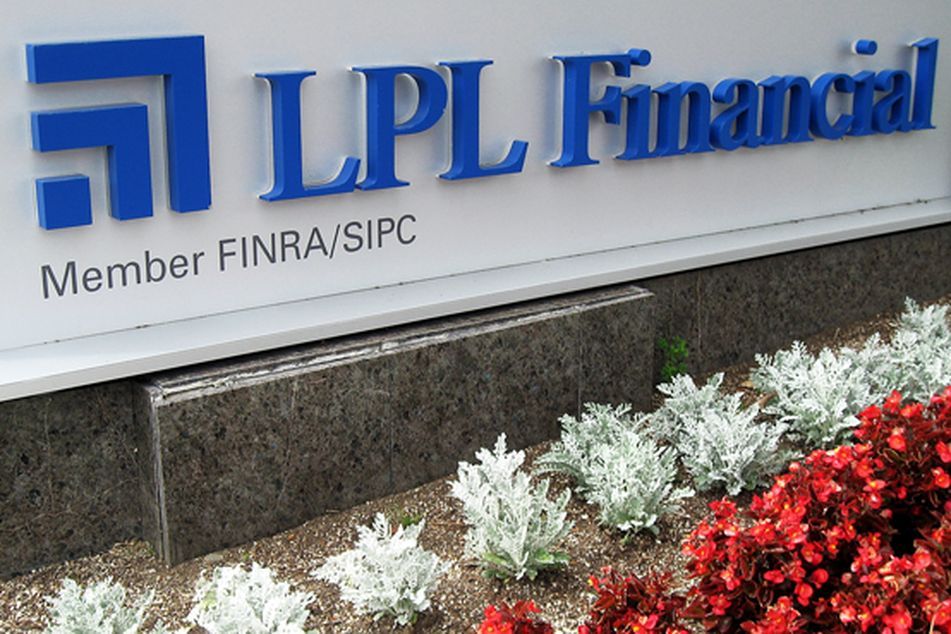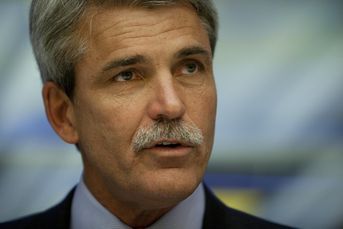LPL to cut bonuses to employees, top management

Top executives at the firm are among those facing smaller bonuses after a year of discouraging financial results.
After a year of discouraging financial results due to a sharp increase in regulatory expenses, LPL Financial Holdings, parent of the nation’s largest independent broker-dealer LPL Financial, will cut bonuses to employees, including the company’s top executives.
“Bonuses will be lower year over year because of the overall performance,” said LPL’s chief financial officer Dan Arnold in an interview Thursday morning. “Qualitatively and quantitatively, the firm came up short, mainly because of the regulatory environment.”
The firm’s compensation committee is holding LPL’s leadership accountable, he said, adding that the bonus cuts were “more heavily weighed to leadership.”
Mr. Arnold declined to state specifically how much bonus compensation had been cut at the firm.
While bonuses at independent broker-dealers such as LPL, which are awarded in February, are not at the heady levels of investment banks, they are a significant part of compensation. Mark Casady, LPL’s CEO and chairman, in 2013 had a bonus of $2.5 million, according to LPL’s 2014 proxy statement. That represents 41% of his $6.14 million total compensation for that year.
LPL released its fourth quarter and annual results on Thursday morning and there were positives.
The company reported earnings per share for the quarter of 66 cents, beating Wall Street’s consensus of 61 cents. The company added 363 net new advisers in 2014, just shy of its stated annual goal of 400, and advisory and brokerage assets grew 8.4% year-over-year to $475.1 billion.
For the first time, LPL crossed the threshold of 14,000 registered reps and financial advisers in 2014, ending the year with 14,036 advisers, an increase of 2.7% for the year.
At the end of July last year, Mr. Casady told analysts and investors that “we are not happy with these results” as the company announced flat second quarter earnings and an increase in general and administrative expenses primarily due to an increase in regulatory expenses.
At the end of October, CEO Mark Casady apologized to shareholders for taking so long to straighten out its compliance issues, with the company taking a $23 million charge to resolve yet undisclosed regulatory issues.
Indeed, 2014 was an extremely costly year for LPL on the regulatory front. The company had $36.3 million of regulatory charges, including fines and restitutions. The charges for 2014 were close to four times the levels of charges LPL had over the previous two-year average.
(More: LPL Financial hit with $2M fine, ordered to pay $820K in restitution)
Mr. Arnold on Thursday was upbeat about LPL’s results. “It was a very good solid quarter, with top line growth that draws gross margin expansion,” he said. That, combined with expense management, particularly compensation and travel expenses, contributed to the positive results for the quarter, he said.
LPL’s net income for the fourth quarter in 2014 was $48.5 million compared with $44.4 million for the same period a year earlier. For the year, however, LPL’s net income decreased 2.1%, dropping to $178 million from $181.9 million in 2013. Net revenue for 2014 was $4.37 billion, an increase of 5.6% from 2013, when LPL had $4.14 billion in net revenue.
During a conference call Thursday morning with analysts and investors, Mr. Casady said he did not regard so called robo-advisers as “a major threat.” He said such online advice offerings are based on lowering costs to investors, an area which LPL already focuses on. He added that robo-advisers don’t deal with investors’ behavior with money and can’t provide counsel, areas where financial advisers can excel.
Learn more about reprints and licensing for this article.








